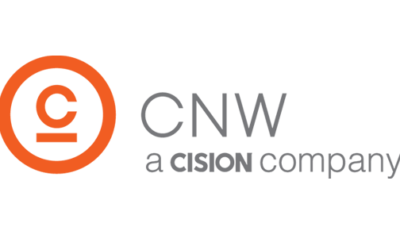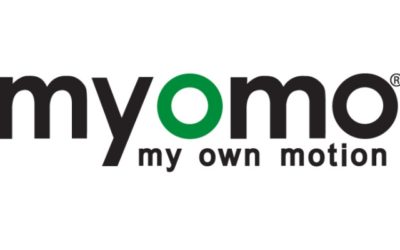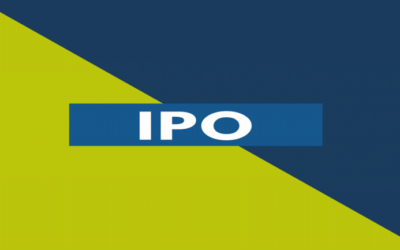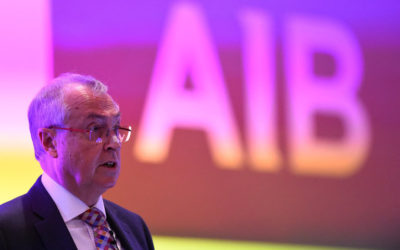Submission management startup Submittable raises $5M
Submission management startup Submittable raises $5M.
Submittable, a startup used by more than 9,000 companies to manage submissions, has raised $5 million in Series A funding.
Missoula, Montana-based Submittable was founded in 2010 with an initial focus on literary magazines that wanted help keeping track of manuscript submissions.
As co-founder and CEO Michael FitzGerald put it, “We started with the poorest customers you could possibly imagine — poetry magazines.” Since then, the startup has expanded to work with a variety of organizations on managing digital content, including résumés, applications and contest entries, with customers including TEDx, The New Yorker and Stanford University.
The next step is building out what FitzGerald calls an “opportunities marketplace.” In its current form, that means Submittable can algorithmically generate recommendations for writers and filmmakers about where they should submit their work.
“Our core belief has always been that the muscle that you use … to create your story is a totally different muscle to getting it published, promoting yourself, doing all that undignified work,” FitzGerald said.
“Submittable’s goal is make it effortless for the writer, for the creator to find opportunity.” That approach also opens up new opportunities for revenue.
FitzGerald said Submittable’s business model will always revolve around selling submission management software to companies, but it could bring in additional revenue by allowing those businesses to promote their calls for submissions through advertising, and by creating a premium version for writers.
FitzGerald acknowledged that starting a company outside the country’s main startup hubs has scared off some potential investors, but he said he’s hoping this investment is “breaking the ice a bit.” He also said Submittable didn’t have to raise the funding — it was already profitable, with more than 35 employees.
Featured Image: Seth Sawyers/Flickr UNDER A CC BY 2.0 LICENSE
Starlight U.S. Multi-Family (No. 1) Value-Add Fund Files Initial Public Offering Final Prospectus, Sets Closing Date for Offering, and Announces Receipt of Expressions of Interest and Commitments Exceeding US$56.0 Million
Starlight U.S. Multi-Family (No.
The balance of the net proceeds of the Offering, if any, will be used to subsequently acquire one or more additional value-add income-producing, multi-family properties in the above-noted target markets within the United States, within nine months of the closing date of the Offering, consistent with the primary purpose of the Fund, and for working capital purposes.
Starlight currently owns and/or asset manages C$7.0 billion in assets in Canada and the U.S., including its partnerships with four institutional investors and a number of international family offices.
The syndicate of agents for the Offering is being led by CIBC and includes Scotiabank, BMO Capital Markets, GMP Securities L.P., National Bank Financial Inc., Raymond James Ltd., TD Securities Inc., Canaccord Genuity Corp., Desjardins Securities Inc. and Industrial Alliance Securities Inc. (collectively, the “Agents”).
The securities described herein have not been and will not be registered under the United States Securities Act of 1933, as amended (the “1933 Act”), and may not be offered or sold in the United States absent registration or an applicable exemption from the registration requirements of the 1933 Act and applicable state securities laws.
This Offering is only being made to the public by prospectus.
Forward-looking Statements This news release contains statements that include forward-looking information within the meaning of Canadian securities laws.
These forward-looking statements reflect the current expectations of the Fund and Starlight regarding future events, including statements concerning expressions of interest and commitments by the principal of Starlight and certain other investors known to Starlight for Class C Units, the closing of the Offering and timing thereof, the use of proceeds of the Offering, the timing of the acquisition of properties by the Fund and the commencement of trading of the Class A Units and Class U Units on the Exchange.
Material factors and assumptions used by management of the Fund to develop the forward-looking information include, but are not limited to, the Fund’s current expectations about: the availability of properties for acquisition and the price at which such properties may be acquired; the availability of mortgage financing; the capital structure of the Fund; the global and North American economic environment; foreign currency exchange rates; and governmental regulations or tax laws.
Although management believes the expectations reflected in such forward-looking statements are reasonable and represent the Fund’s internal projections, expectations and beliefs at this time, such statements involve known and unknown risks and uncertainties that may be general or specific and which give rise to the possibility that expectations, forecasts, predictions, projections or conclusions will not prove to be accurate, that assumptions may not be correct and that objectives, strategic goals and priorities may not be achieved.
Myomo closes $5m IPO
Myomo closes $5m IPO.
Myomo said last week it closed its initial public offering, raising $5 million and listing on the New York Stock Exchange today under the ticker “MYO”.
The Cambridge, Mass.-based company develops and produces myoelectric orthotics for patients with neuromuscular disorders, including its flagship MyoPro line.
The orthosis devices are non-invasive, powered braces used to support weak or deformed arms and hands to allow for functional activity.
Myomo said it floated 665,498 shares of stock at $7.50 per sahre in the offering, bringing in an aggregate of $5 million.
The company said it also simultaneously closed a private sale of investment units to accredited investors for an additional $2.9 million.
“I am very pleased that we have completed a successful IPO and listing on the NYSE MKT, a first under Jumpstart Our Business Startups Act Regulation A+.
Proceeds from the IPO and associated offering are slated to support the MyoPro product line, as well as supporting increased sales and marketing both domestically in the US and internationally.
In March, Myomo said it is looking to raise up to $15 million in a Regulation A+ initial public offering.
The company is taking advantage of new federal securities law under the Jumpstart Our Business Startups Act passed under Obama, which allow small private companies to raise up to $50 million, often referred to as Regulation A+.
Uber CEO Travis Kalanick takes leave of absence
Uber CEO Travis Kalanick takes leave of absence.
Kalanick notes that “During this interim period, the leadership team, my directs, will be running the company.
I will be available as needed for the most strategic decisions, but I will be empowering them to be bold and decisive in order to move the company forward swiftly.
“Some of the responsibilities that Mr. Kalanick has historically possessed should be shared or given outright to other members of senior management” the report outlines.
Other recommendations that impact Kalanick include: Using performance review to hold leaders accountable with metrics tied to diversity, responsiveness to employee complaints, employee satisfaction, and compliance that impact management compensation Adding independent board seats, an independent board chairperson, an oversight committee, and an enhanced audit comittee to oversee Kalanick and Uber management Requiring mandatory inclusive leadership training for Kalanick and other senior management Increasing Kalanick and management’s public support for the human resources team and its new values Uber must now start down the long road of fixing its culture without its CEO.
Below is the letter Kalanick sent to Uber employees: For the last eight years my life has always been about Uber.
Recent events have brought home for me that people are more important than work, and that I need to take some time off of the day-to-day to grieve my mother, whom I buried on Friday, to reflect, to work on myself, and to focus on building out a world-class leadership team.
For Uber 2.0 to succeed there is nothing more important than dedicating my time to building out the leadership team.
But if we are going to work on Uber 2.0, I also need to work on Travis 2.0 to become the leader that this company needs and that you deserve.
It’s hard to put a timeline on this – it may be shorter or longer than we might expect.
Digital pharmacy startup ScriptDash rebrands as Alto, inks $23 million for nationwide expansion
Digital pharmacy startup ScriptDash rebrands as Alto, inks $23 million for nationwide expansion.
“Alto’s latin root means ‘elevated’ or ‘tall’ and we’re trying to elevate the pharmacy experience,” co-founder Mattieu Gamache-Asselin said.
“Doctors and technicians call each other day in and day out trying to coordinate something but they need a technology platform,” Gamache-Asselin explained over the phone.
Of course, Alto isn’t the first trying to solve the communications issues for doctors and pharmacies.
ZappRX, a Boston-based startup in the same space, started out with a mobile solution to an archaic fulfillment infrastructure still pervasive within the modern pharmacy; Capsule is a drug delivery startup out of New York working to modernize prescription fulfillment and Zipdrug is another that comes at it as a sort of Postmates for prescription delivery.
However, Alto’s course of action is to modernize on the backend and onboard providers to use the startup’s new pharmacy communications platform.
That move could likely boost Alto’s sales going forward.
Prescription refills is a very small percentage of the pharmacy biz, according to Alto co-founder Vlad Blumen.
So, if Alto is to grow, it needs to rely more on the doctors sending new or infrequent prescriptions through the system to fulfill orders.
Alto is also pushing beyond the Bay Area for a nationwide rollout with the new capital.
7 Partner Relationships That Can Kill a Good Startup
7 Partner Relationships That Can Kill a Good Startup.
First, you have to be clear on who you are, who you can co-exist with, what complementary skills and resources you need, and what decisions in the business you are willing to relegate.
If you catch yourself thinking any of these thoughts, it’s time to re-think: “Let’s keep it in the family.” On the surface, this seems like a great strategy, with a “share the pain, share the gain” outlook, or just cheap labor.
Investors routinely decline to fund co-founders who are siblings, or in a romantic relationship.
“We both have the same vision.” There is usually only room for one in a vision.
“All decisions will be made jointly.” Two people making a decision need a tiebreaker, and three or more take too long.
A partner who is a carbon copy of you will likely mean two people working on every problem, rather than a natural separation of duties.
Most startups can’t afford that.
No problem when things are going well, but in the hard times, emotions go up and communication goes down.
It usually doesn’t work.
Submission management startup Submittable raises $5M
Submission management startup Submittable raises $5M.
Submittable, a startup used by more than 9,000 companies to manage submissions, has raised $5 million in Series A funding.
Missoula, Montana-based Submittable was founded in 2010 with an initial focus on literary magazines that wanted help keeping track of manuscript submissions.
As co-founder and CEO Michael FitzGerald put it, “We started with the poorest customers you could possibly imagine — poetry magazines.” Since then, the startup has expanded to work with a variety of organizations on managing digital content, including résumés, applications and contest entries, with customers including TEDx, The New Yorker and Stanford University.
The next step is building out what FitzGerald calls an “opportunities marketplace.” In its current form, that means Submittable can algorithmically generate recommendations for writers and filmmakers about where they should submit their work.
“Our core belief has always been that the muscle that you use … to create your story is a totally different muscle to getting it published, promoting yourself, doing all that undignified work,” FitzGerald said.
“Submittable’s goal is make it effortless for the writer, for the creator to find opportunity.” That approach also opens up new opportunities for revenue.
FitzGerald said Submittable’s business model will always revolve around selling submission management software to companies, but it could bring in additional revenue by allowing those businesses to promote their calls for submissions through advertising, and by creating a premium version for writers.
FitzGerald acknowledged that starting a company outside the country’s main startup hubs has scared off some potential investors, but he said he’s hoping this investment is “breaking the ice a bit.” He also said Submittable didn’t have to raise the funding — it was already profitable, with more than 35 employees.
Featured Image: Seth Sawyers/Flickr UNDER A CC BY 2.0 LICENSE
The Case for Opting Out of Silicon Valley’s ‘Growth or Die’ Culture
We need different types of business models that are set up for long-term success.
According to 2015 stats from 500 Startups, 50–80 percent of venture-backed startups yield no return, and just one percent reach $1 billion valuations.
Imagine VCs are God, and animals come to pitch existence.
I knew my company wasn’t a unicorn (or in this case, a whale).
I did, however, know it had potential to be valuable for customers, so I chose to bootstrap for six years before raising any external funds.
We’re seeing some change as Silicon Valley VCs focus more on profitability.
This is a problem rooted in the culture of Silicon Valley, which narrowly defines success as a billion-dollar goal.
We need to start building a more diverse and inclusive ecosystem that supports different kinds of businesses set up for long-term success.
If and when you need funding to scale your growth, look for investors who want to partner with viable businesses rather than bet on the next big thing.
With two decades of experience in analytics-driven customer marketing, business consulting and sales, he is the driving force behind Optimove.
Gitanjali Gems unit Nakshatra World gets Sebi’s nod for IPO
Gitanjali Gems unit Nakshatra World gets Sebi’s nod for IPO.
Gitanjali Gems’ arm Nakshatra World has received capital markets regulator Sebi’s go-ahead to float an initial public offering.
The company had filed draft red herring prospectus (DRHP) with Sebi in March and obtained its ‘observations’ on June 9, which are necessary for launching any public offer, as per the latest update.
Going by the draft papers, the IPO comprises 1.8 crore equity shares of Nakshatra World, which offers jewellery under the brands Nakshatra, Gili, Asmi, Sangini, Diya, Parineeta and Rivaaz.
While the exact size of the IPO could not be ascertained, Gitanjali Gems had in December last year announced that Nakshatra World would raise up to Rs 650 crore through an initial public offer (IPO).
Proceeds of the issue will be utilised towards funding working capital requirements and other general corporate purposes.
The public issue is being managed by IDBI Capital Markets & Securities and Elara Capital (India) Pvt Ltd.
Nakshatra will join other listed jewellery retailers such as PC Jeweller, Tribhovandas Bhimji Zaveri, Tara Jewels, Titan Company, Rajesh Exports and Shree Ganesh Jewellery House.
Its distribution network is spread across 290 cities and towns in India, with more than 1,644 points of sale.
In overseas markets, the company has 890 points of sale located across China, Singapore, Thailand, Malaysia, Indonesia, UAE, Saudi Arabia and Qatar.
Intudo Ventures launches $10M fund for Indonesia’s fast-growing startup ecosystem
Intudo Ventures launches $10M fund for Indonesia’s fast-growing startup ecosystem.
Indonesia is one of Southeast Asia’s most promising startup market.
Today, its ecosystem gained a new investor with the launch of Intudo Ventures’ debut fund, which has more than $10 million to invest into about 12 to 16 early-stage startups, as well as joint ventures with overseas companies that want to break into the Indonesian market.
Intudo was founded by Eddy Chan and Patrick Yip (pictured above), who are working with founding advisor Timothy Chen.
Collectively, the three have invested in a notable roster of companies including PayPal, SpaceX, Palantir, Netscreen, and Fortinet.
While Indonesia’s startup industry and venture capital ecosystem are still young, Chan told TechCrunch that Intudo’s team “sees strikingly similar trends to what we observed in China in the early 2000s.” Indonesia is the world’s fourth-largest country by population, with about 260 million people, and it is also one of the fastest-growing Internet markets by penetration, with Internet users (most mobile-first) expected to jump from a current 92 million to 215 million in 2020.
In China, Chan says, ’sea turtles’ had significant influence in the 2000s, but as the tech sector matured, their advantages became less unique.
Turtles to return to help build out best practices and infrastructure, which will allow them to capitalize the growth of the venture capital ecosystem.
(Chan says that while Silicon Valley-based startups usually raise about $1 million to $5 million for seed funding, and $5 million and $15 million for Series A rounds, in Indonesia that figure is usually divided by five because of differences in cost structure.
In other words, Indonesia-based startups usually raised about $200,000 to $1 million for seed rounds, and $1 million to $3 million in Series A financing, though recently he has seen funding amounts and valuations for some startups increase dramatically by their Series B and Series C rounds, so that they are comparable to similar companies in Silicon Valley).
Why bootstrapping is a very viable alternative to raising funds
Why bootstrapping is a very viable alternative to raising funds.
The funding for start-ups also dropped by 50% this year to $3.8 billion as compared to $7.6 billion last year as investors turn cautious and keep a hold on the purse strings.
With funding drying up, the Indian startup scene is now looking to consolidate.
But, do start-ups really need to focus on funding to survive or successfully start a business?
With such an A-list of companies, it is a wonder that start-up founders don’t consider bootstrapping as an alternative way of funding, as it helps to focus on profitability and financial discipline along with the freedom to pursue one’s direction while largely maintaining control.
Build your own culture and values: Successful entrepreneurs have a clear vision of what they want their company to be and how the future will unfold.
By this time, your company would have been able to prove its financial viability, thus encouraging investors about the company’s credibility and its ability to grow.
Focus will be on consumers than investors: When investors come on board, the founders usually have to focus on getting quick returns for their investments.
It is time Indian entrepreneurs stop distracting themselves from vanity metrics like valuation or funding raised.
Bootstrapping can help start-ups build vibrant and sustainable businesses and follow the ‘fail often, fail cheap and fail fast’ mantra.
Allied Irish Banks Could Be Valued at $14.9 Billion in I.P.O.
Allied Irish Banks Could Be Valued at $14.9 Billion in I.P.O.. LONDON — The Irish government on Monday announced a price range for Allied Irish Banks that could value the bank as high as $14.9 billion when it goes public this month — seven years after it was nationalized.
The initial public offering is an important milestone in the recovery of the Irish banking system, which nearly bankrupted the country after the financial crisis of 2008.
“The time is right to move to the next stage in A.I.B.’s I.P.O.
The Irish government injected 21 billion euros, or $23.5 billion at current exchange rates, into Allied Irish Banks, one of Ireland’s largest lenders, in 2009 and 2010 as it suffered under the weight of property loans that went bad amid the financial crisis.
The government now owns about 99 percent of its shares.
After rescuing its banks, Ireland was forced to seek its own bailout, receiving €67.5 billion from the European Union and the International Monetary Fund.
Ireland emerged from the international bailout program in 2013.
On Monday, the Irish government said it expected to price the offering of Allied Irish Banks from €3.90 to €4.90 a share.
In 2015, ABN Amro returned to the public markets as the Dutch government sold a 20 percent stake.
Retail investors in Britain and Ireland and institutional investors will be able to participate in the initial public offering.
Hungry for Funding? New Avenues for Food Startup Financing are Opening Up
Ask many people how to find funding for emerging food projects, and lots of them will point to crowdsourcing sites.
If you have a food or beverage startup concept, consider PieShell.
Check out some of the concepts that PieShell is funding here.
The crowdfunding experience helped them realize that their real potential was in B2B (business-to-business), rather than consumer markets.” According to Halter, another benefit to crowdfunding is that it can give you an instant hook for a pitch to the press.
The basic concept is that customers are investors.
Through Credibles, Driver’s Market has already raised over $100,000 from its customers, with the first $10,000 arriving in 10 days.
You can find out how to get your business or concept funded with Credibles here.
The angel investors who provide funding for technology-focused startups have their counterparts in the food and beverage arena.
The Angel Food Network is an organization of emerging food and beverage companies seeking funding.
Food tech concepts have the potential to qualify, and you can find out more here.
Drone Racing League raises a $20M Series B ahead of its 2nd season
Drone Racing League raises a $20M Series B ahead of its 2nd season.
Drone Racing League has closed on $20M in Series B funding, led by U.K telecommunications company Sky, Liberty Media Corporation (which owns the Formula 1 racing brand) and Lux Capital.
Allienz (who is also the title sponsor of DRL) and World Wrestling Entertainment also joined the round as new investors in the startup.
While the new funding is certainly a benefit to the young startup, Nicholas Horbaczewski, founder and CEO of DRL emphasized that that the funding round materialized as a result of wanting to work strategically with some of the investors.
For example, Liberty Media is deeply entrenched in the world of sports entertainment and broadcasting – they have a stake in Live Nation, Sirius XM, and the Atlanta Braves.
The group also just purchased Formula 1, the popular international car racing league.
DRL’s 2017 season starts on June 20th and besides being broadcast on ESPN will be shown on SKY Sports, DisneyXD and other networks that will give the league distribution in over 75 countries, up from the 40 countries where DRL aired in last season.
The races aren’t broadcast live, which Horbaczewski explained was actually a benefit for the young league.
By broadcasting races at a later date and time DRL can make sure that its content airs at times convenient for users in different time zones.
That being said, all races are essentially filmed live to tape, so the league will be ready to go when the sport eventually gains enough momentum to support a shift to live broadcasts.
Why Having an Exit Strategy Does Not Mean I Want to Sell My Business
Why Having an Exit Strategy Does Not Mean I Want to Sell My Business.
This is a 5 year decision.” In other words, the alternative to selling a successful business, is a commitment to a continued evolution, iteration, and reinvention.
Investors like to ask funded entrepreneurs: “What’s your exit strategy?”.
In my experience building ShipCompliant, I felt having an answer to that question drew me away from the long term.
For this reason, I decided bootstrapped businesses shouldn’t have an “exit strategy” if they desired to build a GREAT, PROFITABLE and DURABLE company.
I had confused an exit strategy with the question: “how will you sell your company?”.
When in fact, an exit strategy is more a vehicle for determining a long term vision for what one wants out of their business.
How can my business best serve that vision?
Now that I have sold my company, and left the business, the suggestion I give other entrepreneurs in this position is to answer the question: “What do I want my ideal life to look like 10, 20, 30 years in the future?”, and document it during a time of relative calm and unimportance.
Those are BIG questions.
Stratumn Raises €7M To Fund Expansion Into US
Stratumn Raises €7M To Fund Expansion Into US.
Stratumn, the blockchain startup, has raised €7 million in a new round of venture funding.
According to a report, the Series A funding round was led by CNP Ventures with participation from Nasdaq, Digital Currency Group and Otium Venture.
Our new investors will enable Stratumn to continue and accelerate its development and more effectively address growing needs in our markets,” said Richard Caetano, Stratumn’s co-founder and CEO in the report.
For CNP Ventures, the arm of CNP Assurances, an insurance firm in France, it’s the first investment in a blockchain startup.
Blockchain startups are getting a lot of attention from all sorts of investors in recent months.
In April, Spotify announced its acquisition of blockchain startup Mediachain Labs.
In this new venture together, the Mediachain Labs team will work to better connect artists and rightsholders with Spotify-hosted music tracks.
Mediachain Labs uses blockchain technology to solve any attribution issues, which benefited Spotify’s licensing issue with the National Music Publishers Association (NMPA) last year.
To help alleviate any future music distribution and royalty problems, Spotify paid $25 million total.
Time-tracking startup Timeular raises $1.1M to help you work smarter
Timeular, the Austrian startup behind the neat Zei time-tracking device that we wrote about last year, has raised €1 million ($1.1 million) in funding to develop new productivity coaching tools to help you work smarter.
The device blew past its €75,000 goal on Kickstarter, going on to raise €313,637 from over 3,000 backers.
It caught the eyes of others, too.
“We want to help people to become more productive and see how they can spend their time better.” The company is using this new fundraising to develop a time-tracking and productivity solution that will give users tips to boost their output, and reports into how their work productivity is faring.
The exact details are still to be defined, but he said that the core service will be available to paying users, who would subscribe to an ongoing paid membership package.
There may be limited options for free users.
“People are stating to care more about time than money,” Bruschi added.
“That’s what we want to help them achieve.
“Timeular has developed a revolutionary product to tackle one of our greatest challenges: finding time for important things in life,” he told TechCrunch via email.
“Manuel and his team have the potential to really change the way we make use of our time.”
Emaar hires Goldman Sachs to manage IPO of real estate unit
Emaar hires Goldman Sachs to manage IPO of real estate unit.
The developer of the world’s tallest tower expects to complete the initial public offering by November with a size similar to its Emaar Malls PJSC offering, Alabbar said in an interview with Bloomberg Television.
The malls unit IPO raised about $1.58 billion in 2014 and is the largest share sale in the UAE in the past nine years, according to data compiled by Bloomberg.
Emaar, listed on the Dubai Financial Market, announced plans to spin-off its real estate unit on Wednesday and use the proceeds to pay a special dividend.
Dubai’s biggest publicly-traded company is listing its UAE real estate arm to help achieve a better valuation from investors, Alabbar said.
The shares have rebounded 9% since dropping to a six month low on 6 June.
After developing the Burj Khalifa, the world’s tallest skyscraper, the company is now working on The Tower in Dubai Creek Harbour with Dubai Holding LLC.
Emaar may consider spinning off its entertainment and hospitality units as it seeks to maximize its equity valuation, Alabbar said.
“Then we become a holding company with a focus on driving these entities and creating value.” Blackstone Group LP and CVC Capital Partners are among buyout firms weighing a bid for as much as a 40% stake in some of the assets in Emaar’s entertainment division, people familiar with the matter told Bloomberg in May.
Bloomberg
















